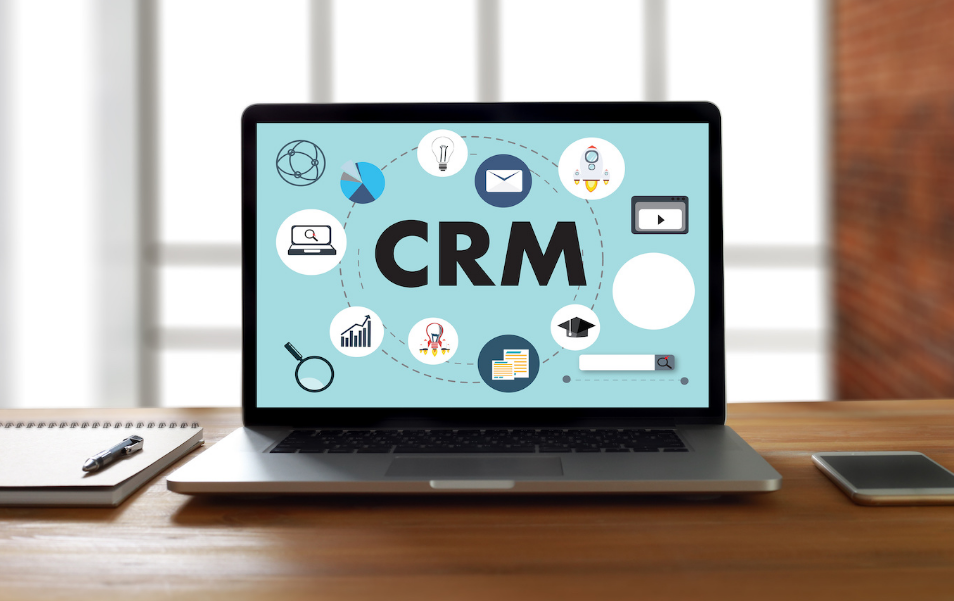Top CRM Challenges and How to Overcome Them Customer Relationship Management (CRM) systems are vital for businesses looking to streamline their processes and enhance customer interactions. Yet, as crucial as CRM systems are, many businesses face significant challenges when implementing them. From high initial costs to user adoption issues, these hurdles can seem daunting. However, with the right strategies, these challenges can be effectively managed and overcome.
Understanding CRM Challenges
High Initial Costs
Budget Constraints
One of the primary hurdles in CRM implementation is the high initial cost. For many small to medium-sized enterprises (SMEs), budget constraints make it challenging to invest in comprehensive CRM solutions.
Cost vs. Benefit Analysis
While the upfront costs can be steep, it’s crucial to conduct a cost vs. benefit analysis. Understanding the long-term benefits and ROI of a CRM system can help justify the initial expenditure.
User Adoption Issues

Resistance to Change
Employees often resist new systems and processes. This resistance can stem from a fear of the unknown or a preference for established routines.
Lack of Training
Without adequate training, users may struggle to utilize the CRM system effectively, leading to frustration and underutilization of the software.
Data Management Problems
Data Silos
Data silos occur when information is isolated within different departments, making it difficult to have a unified view of customer interactions.
Data Quality
Ensuring the accuracy and quality of data is another significant challenge. Inaccurate data can lead to poor decision-making and inefficiencies.
Integration Difficulties
Multiple Systems
Businesses often use multiple systems for different functions. Integrating these systems with a CRM can be complex and time-consuming.
Technical Compatibility
Technical compatibility issues can arise when trying to integrate legacy systems with modern CRM solutions, leading to potential disruptions.
Customization and Scalability
Business Growth
As businesses grow, their needs evolve. Ensuring that the CRM system can scale with the business is crucial.
Custom Feature Needs
Different businesses have unique requirements. Finding a CRM that can be customized to meet specific needs can be challenging.
Overcoming CRM Challenges
Managing High Initial Costs
Cost-Effective Solutions
Opt for cloud-based CRM solutions or modular systems that allow you to start small and expand as needed. These options often have lower upfront costs and flexible pricing plans.
ROI Justification
Present a detailed ROI analysis to stakeholders, highlighting the long-term benefits and potential savings from improved efficiencies and better customer management.
Enhancing User Adoption
Effective Training Programs
Implement comprehensive training programs that cater to different learning styles. Hands-on training, video tutorials, and continuous support can help ease the transition.
Change Management Strategies
Develop change management strategies to address resistance. Communicate the benefits of the CRM system clearly and involve users in the decision-making process.
Improving Data Management
Centralizing Data Storage
Centralize data storage to eliminate silos. Use a unified database that allows for seamless data sharing across departments.
Ensuring Data Accuracy
Regularly clean and update your data to maintain its accuracy. Implement data validation rules and establish protocols for data entry.
Simplifying Integration
Choosing Compatible Systems
Select CRM solutions that are known for their compatibility with other software. Consider using APIs to facilitate smoother integrations.
Professional IT Support
Invest in professional IT support to manage the technical aspects of integration. This can prevent disruptions and ensure a seamless transition.
Customizing and Scaling CRM
Scalable Solutions
Choose a CRM that offers scalable solutions, allowing you to add more features as your business grows.
Custom Development Options
Work with developers to customize the CRM to meet your specific needs. This can include developing custom modules or integrating third-party applications.
Case Studies
Successful CRM Implementation
Small Business Example
A local retail business successfully implemented a cloud-based CRM system. Despite initial budget concerns, they opted for a scalable solution that allowed them to start small and add features as needed. Through effective training and regular data updates, they saw a significant improvement in customer satisfaction and sales.
Enterprise Example
A large enterprise faced integration challenges with their existing systems. By investing in professional IT support and choosing a CRM known for its compatibility, they managed a seamless integration. The company also focused on user adoption by providing extensive training and involving employees in the process. This led to increased productivity and better customer insights.
Conclusion
Implementing a CRM system comes with its share of challenges, from high costs and user resistance to data management and integration issues. However, with strategic planning and the right approach, these challenges can be effectively managed. Investing in training, choosing scalable solutions, and ensuring data accuracy are key steps in overcoming these hurdles. Ultimately, a well-implemented CRM system can provide significant long-term benefits, enhancing customer relationships and driving business growth.
FAQs
What is the most common CRM challenge?
The most common CRM challenge is user adoption. Employees may resist new systems due to a lack of familiarity or fear of change. Proper training and change management strategies can help mitigate this issue.
How can small businesses afford CRM systems?
Small businesses can opt for cost-effective, cloud-based CRM solutions that offer scalable features. These systems often have lower initial costs and flexible pricing plans.
What are the best practices for CRM user adoption?
Best practices for CRM user adoption include providing comprehensive training, involving employees in the decision-making process, and clearly communicating the benefits of the system.
How can I ensure my data is accurate in a CRM system?
To ensure data accuracy, regularly clean and update your data, implement validation rules, and establish protocols for data entry.
What should I look for in a CRM to ensure it will scale with my business?
Look for CRM solutions that offer scalable features and customization options. Ensure the system can integrate with other software and has a flexible pricing plan to accommodate growth.